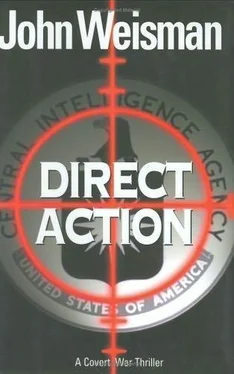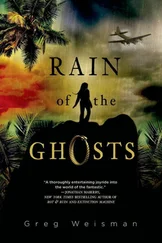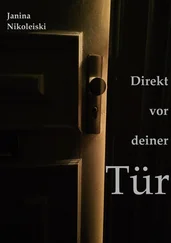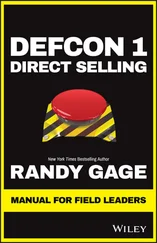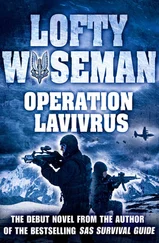Meeting Shahram today meant rearranging everything. Tom had been up for almost two days now. The retired Delta trooper he’d recruited for Tel Aviv had been murdered in Gaza. The initial reports from AMEMBASSY Tel Aviv was that the bombing had been the work of a renegade Palestinian splinter group intended to embarrass Arafat and derail the American road map.
Maybe. But maybe not. McGee had sent an e-mail to Tom’s Yahoo mailbox the night of the fourteenth. Attached to the “Hi, how are you” message was a postcard-pretty photo of the Old Jaffa port. Hidden in the picture through steaganography was a short encrypted message telling Tom that within twenty-four hours, McGee would be transmitting a photograph that needed urgent identification and please to stand by.
Now McGee was dead, 4627’s Israeli office had lost track of McGee’s Palestinian developmental, and Tom couldn’t help thinking that by putting McGee in harm’s way, he’d been complicit in his death. Then there was MJ. She was due to arrive tomorrow morning. And there was his boss. Antony Wyman had called to say he was stopping over in Paris for a day or so on his way back from Moscow. He wanted a thorough debrief on the Gaza fiasco, which had sent Tom scrambling.
And then last night, just before midnight, Shahram had reached him on the cell phone. “My dear boy, where have you been? I have been trying to contact you for more than a day. I have left messages.”
This was not true. On Monday, Shahram had left one message-which had been both short and nonspecific. Tom was curt and uncharacteristically frosty. “I am sorry, Shahram. It’s been quite busy.”
The Iranian hadn’t seemed to notice. “I have been away-self-preservation of a sort. But I have an engaging story to tell you,” he said. “ Très provocateur. You will be fascinated. We must meet tomorrow. Must. I will not accept an excuse.”
Perhaps it was the fact that Tom genuinely liked Shahram Shahristani. The Iranian had suffered financial losses over the past year that sapped both his monetary and emotional resources, and Tom didn’t want Shahram to feel he was letting him down. Or perhaps it was that having spent sixteen years as a case officer, he couldn’t resist the temptation of a juicy piece of gossip. But there was something else as well. He’d sensed an urgency to Shahristani’s voice that belied the Iranian’s chatty tone. So he’d surprised himself by immediately saying yes, then broke another self-imposed rule by accepting the Iranian’s suggestion that they rendezvous chez Monsieur Francis Marie at noon.
12:14P.M. Tom watched as Monsieur Marie greeted Shahristani warmly, waited until he’d shed his gloves, then folded the Iranian’s dark blue overcoat and burgundy silk scarf over his arm. The patron ’s son Jeff ushered the Iranian to the rear dining room.
Tom rose, slid out from behind the banquette, and took Shahristani’s hands in his own. “Shahram, bienvenue .” He and the Iranian kissed each other’s cheeks in the Middle Eastern fashion: right, then left, then right again.
The Iranian’s hands were cold. Shahram rubbed them together as Tom slid into the banquette, his back against the restaurant’s rear wall. “The winter is coming, Thomas,” he said, pronouncing Tom’s name “To- mass .” “My bones begin to ache. I’ll have to go south again soon.” He smiled fleetingly. “South, like a bird.” He gestured past the restaurant’s curtained front windows with his head. “Too bad for them, eh?”
“Them” had to be the DST surveillance team that from time to time overtly shadowed Shahristani. Of course the French were interested in knowing with whom the Iranian met. But he’d also been the target of three assassination attempts and the interior minister wanted nothing to happen to Shahram on Chirac’s watch. So they’d assigned Shahristani a regular crew, which had been following him so long that Shahram sent their families presents at Christmas.
“Do they actually travel with you, Shahram?”
“No-these poor devils have to stay in Paris. There’s another team waiting for me in Antibes when I go back tonight.” Tom settled himself on his guest’s left. He poured Shahristani a full glass of water from the bottle of Evian, then waited as the Iranian wrapped it in a napkin, took it up, and sipped. Shahram was a prudent man. He was even careful about leaving fingerprints in restaurants. He looked probingly at Tom. “My boy, you look drawn. Is something the matter?”
“It’s been a busy couple of days, Shahram.”
“Not Gaza, was it? What a mess the other day, eh?”
Tom nodded grimly. “I knew one of the casualties.”
“I am sorry.” The Iranian set the water glass down. “They weren’t 4627 people.”
Shahram was eliciting. That was uncharacteristic. The Iranian’s habit was to back into the day’s business conversation in the slow-paced Middle Eastern fashion after first inquiring solicitously about the details of Tom’s own life. Today he was all business. Tom decided to follow Shahram’s lead. He poured himself a half glass of the Brouilly and deflected. “No. DynCorp contractors.” Tom stopped talking as a waiter unfurled two starched napkins and offered one to him and the other to Shahram. “But I’d known him, peripherally…before.”
“In your other life.”
“My other life. That’s an interesting way of putting it.”
“What you used to do, my boy, was live in an alternative universe. Everything was nothing, and nothing was everything. It was totally existential. I know this from my own experience.” He paused. “And when it was good, there was nothing like it, eh?”
“Agreed, Shahram.”
“And now…” The Iranian gave Tom a sly look. “You are like me. You take information and you turn it into money-like dross into gold. And you do…other things.”
Tom examined the bemused expression on his old friend’s face. I wonder how much he knows. Shahram had an exceptional talent for sniffing out information. He’d been schooled by Mossad, which in the 1960s and 1970s sent instructors to all of the shah’s intelligence agencies.10That was why, unlike so many other operatives from his part of the globe, Shahram had never operated in the rigid Soviet style. Instead, he took the more pragmatic and fluid approach to the craft epitomized by the Israelis, the French, and the Brits. A dialogue with him was like a chess game. Tom had to think half a dozen moves ahead to avoid falling into a trap.
Another element of the Iranian’s success as a spymaster was his appearance. He didn’t look threatening. He was a Persian George Smiley of average height-perhaps five feet eight or so. He kept himself trim by walking no fewer than five miles a day, rain or shine. His olive skin was set off by sparse gray-white hair, which he wore longish, so that it fell over his collar in back. Shahram looked a lot more like the central casting archetype for a semiretired French businessman or bureaucrat’s banker than what he was: a talented intelligence operative; the “gray man” who disappeared into a crowd with a pocketful of secrets.
Except for his eyes. There was fire in them. Shahram’s eyes betrayed the Iranian’s burning dedication to intelligence gathering and his talents for eliciting information and running intricate, convoluted, elaborate-and often profitable-operations. Those passions had served Shahram well when he’d worked for the shah. In the two-plus decades since, they had made him a multimillionaire several times over.
Most of the time, Shahram concealed his eyes behind brown-tinted glasses. Still, every once in a while, when he stared at Tom, his eyes bore right into the younger man’s skull-drilled inside his brain, and reminded Tom that Shahram was a world-class player who’d never left the game.
Читать дальше
